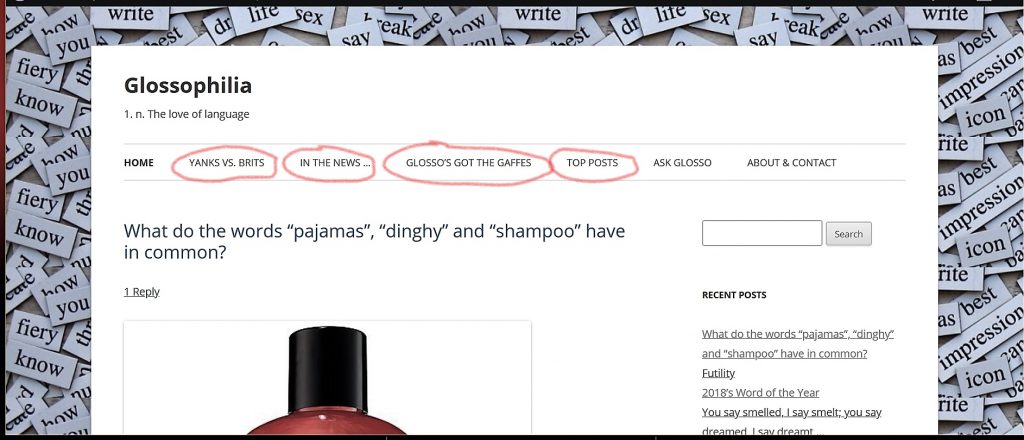
For Glosso readers regular and new:
Glossophilia wants to draw your attention to its menu, which allows you to choose and read particular categories of post with a simple tap or key-stroke. Whether you’re into glorious gaffes, the differences between Brit-speak and Ameri-speak, the origins of words and phrases, or stories about grammar and language that are making headline news, you can find it all organized and easy to find at Glosso.
Using the menu at the top of the computer screen (as illustrated above) or in the drop-down menu on mobile devices, you can choose to see posts that fall into the following most popular categories:
“Yanks vs Brits”: posts about differences between British English and American English
“In the news”: stories about words, language and language usage that are hitting the headlines
“Glosso’s got the gaffes”: typos, grammatical errors and other amusing language slip-ups that are making us laugh — or cringe
“Top posts”: Posts that have attracted the most readers from around the world (188 countries) over the past 7 years
In the “categories” section to the right of the web screen (and at the bottom of the mobile site) you can see additional categories of Glosso posts*, which filter as follows: Etymology; Fonts & typefaces; Grammar; Jokes and puns; Language; Manners; Names; Nit-picking; Poems, prose & song; Pronunciation; Punctuation; Quizzes; Spelling; and Words, phrases & expressions.
Enjoy your time on the blog, and please feel free to contribute your thoughts, theories or questions and start discussions with fellow glossophiles in the comments section.
***
Please note that most posts fall into more than one category.









